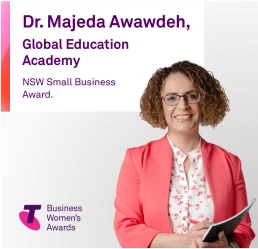My child lacks confidence in their academic abilities, how can I help them build their confidence?
This is a question we often hear from parents.
Many students experience a lack of confidence in their learning, regardless of whether they are a poor or high performing student.
If you look at it from an adult lens, it’s similar to the concept of “imposter syndrome” which many adults also experience at some point in their careers. Imposter syndrome can be defined as doubting your abilities and feeling as though you’re not as competent as people perceive you to be.
Perhaps this is something you have experienced during your working life, and you can empathise with your child. This is a good way to build connection with your child and assure them that lack of confidence is common. You just don’t want your child to stay in a state of self-doubt.
Keep reading this blog to discover how you can help your child overcome self-doubt and increase their confidence.
The Cambridge dictionary defines confidence as “the quality of being certain of your abilities or of having trust in people, plans, or the future”.
Confidence is reflected in statements like “I can” rather than “I can’t”, a belief that one is capable to do what they set out to do. However, confidence can often be threatened during the learning journey. As students learn new concepts that they are unfamiliar with and are yet to prove their ability to apply these concepts, this invites self-doubt.
Confidence is also one of the 5Cs in our Five-C-Method of teaching at Global Education Academy. Our goal is to unlock the potential of every student using 5Cs – clarity, cognisance, confidence, connection, and cultivation.
At Global Education Academy, we believe a confident child:
Self-confidence comes from a sense of competence. When children are empowered with problem-solving skills, a solid foundation in Maths and English, and are encouraged to make mistakes and learn from them, they enjoy learning and become more competent.
Building positive self-esteem and self-confidence does not always come naturally. However, it is infectious. Research has shown that teachers with high confidence in their teaching ability create confident learners. Our teachers are qualified and experienced, confident in their ability to teach and to motivate students. They are caring and passionate and believe in a growth mindset.
Confidence comes also from a sense of self-worth. While self-esteem generally results from how children feel when comparing themselves to others, self-worth comes from an inner belief of their ability and persistence. We place our trust and belief in our students, who will then mirror those beliefs.
Our students learn how to set goals and work towards them. When they build confidence, they are also more likely to become independent learners. Hence, they develop a sense of leadership and become responsible for their actions and outcomes.
As we’ve said, confidence may not come naturally. At times, it requires intentional strategy to build and nurture. To help your child gain more confidence in their learning, here are a few tips you can try:
One way to encourage more learning and practice outside of the classroom is through tutoring. If you’re not sure whether tutoring is right for your child, take advantage of our upcoming FREE Trial Week in Week 6 (Monday 30 May to Saturday 4 June 2022). Students in Pre-Kindergarten to Year 8 can take Mathematics and/or English group classes (excludes Selective and Opportunity Class and 1-on-1 sessions) at our Kogarah or Turramurra campuses.
There are limited spots available – don’t miss out! Book by calling 1300 001 432 or email enquiries@globaleducationacademy.com.au.
Join us for a FREE TRIAL during Week 6: Monday 30 May to Saturday 4 June 2022.
Available for all face-to-face classes in Kogarah and Turramurra.
BOOK NOW 1300 001 432
Spots are limited – Book early to avoid disappointment.
Excludes our OC and Selective preparation classes and our online classes.







